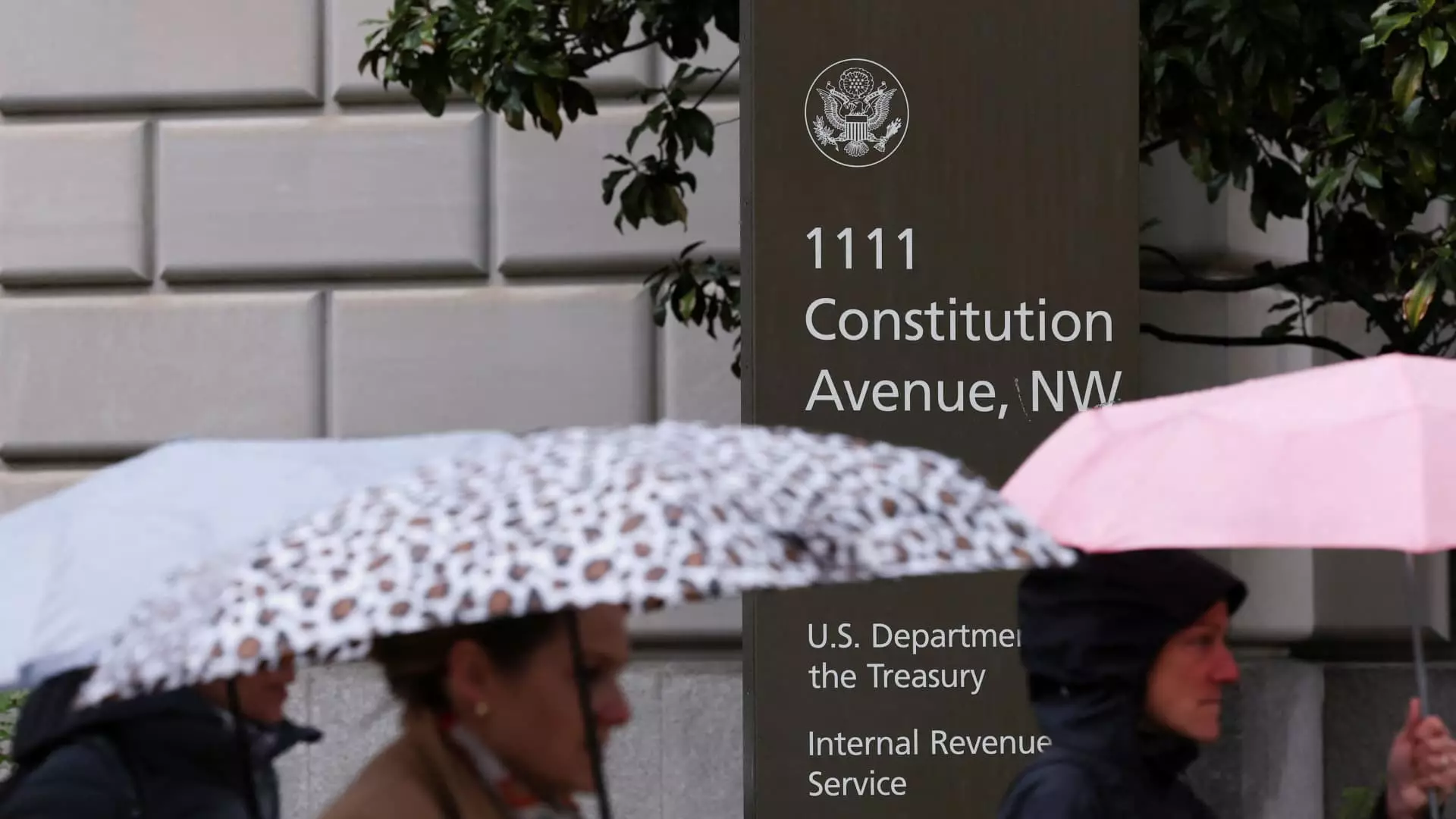In a move that feels both reckless and alarming, the IRS has chosen to embark on a downward trajectory with its staffing, dismantling efforts designed to scrutinize wealthy tax returns. The recent firing of young financial professionals, brimming with potential to innovate and challenge the status quo, reveals a staggering miscalculation. The agency initialised its recruitment spree in 2024, with an ambitious $80 billion funded to target high-net-worth individuals and corporate structures. These new hires, like Wesley Stanovsek from Columbus, Ohio, represented the future of tax enforcement. Having a keen expertise in S-corporations, partnerships, and trusts, Stanovsek could have cracked cases amounting to millions in lost revenue. Instead, the government, due to political whims and shortsighted budget cuts, has sent them packing.
This loss isn’t merely a setback; it’s a practical dismantling of the oversight of wealth. As Stanovsek found himself dismissed, his high-profile cases simply faded away, leaving millions of dollars unexamined. The absurdity of letting potential tax liabilities succumb to neglect, due to administrative failings, showcases a disturbing trend. A systematic erosion of accountability within the IRS means an open invitation for wealthy individuals to engage in dubious tax practices without fear of consequence.
Illusions of Freedom for the Wealthy
Amidst these sweeping job cuts, extravagant financial strategies are revived as the elite celebrate a perceived liberation from the shackles of IRS scrutiny. The reduction of agent oversight presents them with a golden opportunity to exploit loopholes that would otherwise be monitored. The Biden administration previously sought to tighten the noose around high earners, intending to double audit rates for individuals making over $10 million annually. However, as this current regime retreats, the wealthy are likely rubbing their hands in expectation of an easier tax landscape.
The stark reality is that this situation serves to fortify the advantage of those already in a privileged position. Wealthy taxpayers and their advisors are not acting out of a desire for compliance but are reveling in the absence of enforcement. While it’s important to file returns, there’s an ever-increasing sense that overstepping will often go overlooked. This imbalance not only threatens revenue collection but also leaves the average taxpayer to carry the burden of contributing to public coffers.
Revenue Loss: A Brewing Disaster
It’s no secret that when IRS staff dwindles, so too does its ability to collect revenue. Reports indicate that budget cuts could result in a dramatic revenue shortfall, estimated at a staggering $160 billion over the next decade, with some figures suggesting losses could reach up to $500 billion in a single year. Previously effective teams, such as the Large Business and International unit, were generating a remarkable return on investment of $100 for every 33 cents spent on enforcement. Yet, with a lack of personnel, this once-mighty unit faces extinction, potent cases worth millions of tax dollars slip through the cracks as the agency gears down.
It’s a disheartening realization that while the average American faces unpredictable tax obligations, the affluent may find themselves in an environment rife with manipulation and exploitation. Creative tax avoidance strategies, particularly around complex schemes that the IRS hasn’t yet caught onto, will flourish in this notorious vacuum of enforcement.
The Nightmarish Bureaucratic Gridlock
The dangers of this staffing crisis extend far beyond mere audit reduction. With fewer agents available for appeals, many cases are indefinitely stuck in limbo. Take the predicament voiced by taxpayers, where $8 million worth of owed taxes remains unassessed due to an utter lack of IRS response. Particularly for clients attempting to sell properties encumbered with tax liens, transactions have become fraught with needless complications and terrifying delays.
These bureaucratic nightmares are compounded by an overly reliant automated system that often misinterprets taxpayer situations due to a lack of human oversight. The IRS’s over-reliance on artificial intelligence for auditing is a dangerous gamble; while AI can be efficient in selecting potentially problematic returns, it lacks the nuanced understanding of a seasoned auditor required to make informed decisions. Taxpayers are left hanging while unanswered queries languish, and cases simply fall through the cracks as the agency’s personnel dwindle.
A Theoretical Approach to Technological Efficiency
Despite these alarming trends, Treasury Secretary Scott Bessent maintains a misguided optimism. His assertion that technology and AI could compensate for staff cuts is disconcerting. While there’s no denying that technological advancements could facilitate certain tasks, the human element remains irreplaceable. Experienced professionals bring critical judgment, reasoning skills, and the ability to navigate complex scenarios, attributes that AI has yet to master.
In an environment where a significant portion of tax transactions requires human deliberation, Bessent’s dismissal of hiring experienced staff in favor of technology strains credibility. The combination of automated systems with dwindling human resources poses a significant threat to the integrity of a fund body’s core mission – revenue collection. Thus, while technology indeed has a role to play, it cannot and should not replace human expertise, especially within such a pivotal institution.
The IRS’s recent trajectory toward deterioration raises fundamental concerns about fairness and efficacy in tax collection that echoes throughout the fabric of American society. We must remain vigilant against letting the whims of politics overshadow the crucial functionality of the agencies tasked with upholding justice and equity.

Leave a Reply